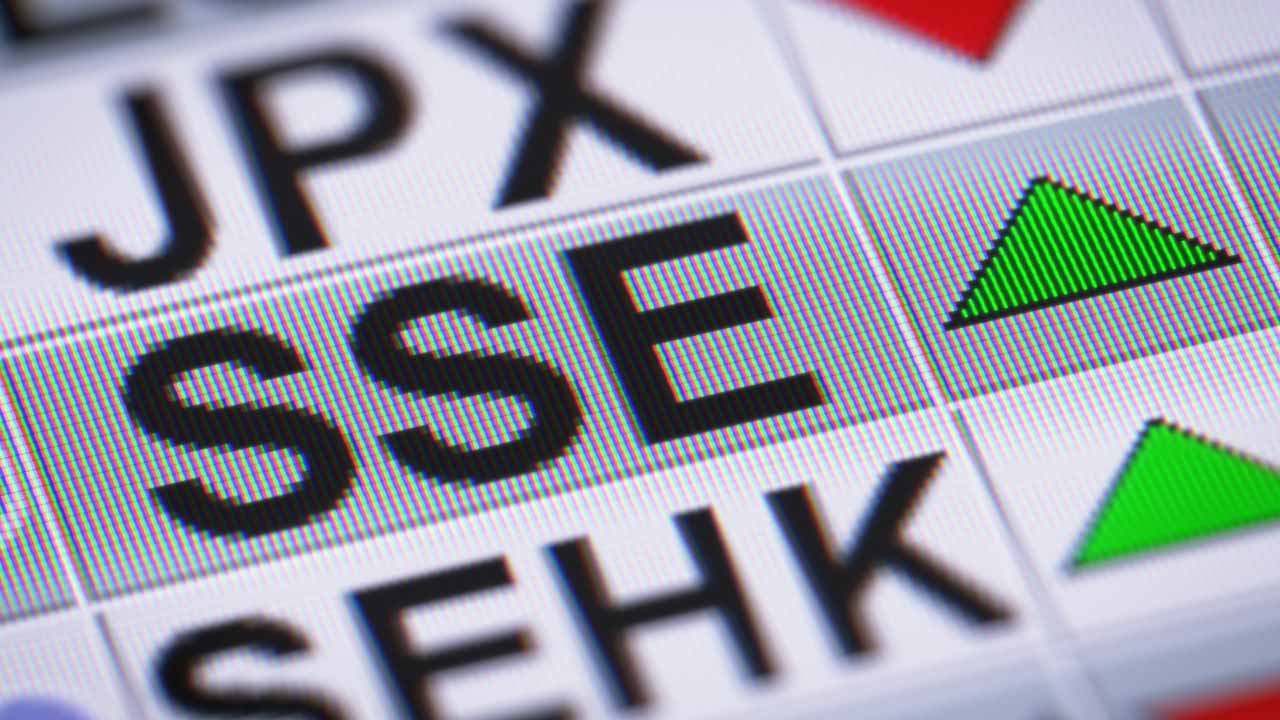Trading the Shanghai Index provides investors access to the rapidly growing Chinese economy. It also contributes to portfolio diversification as it consists of stocks from different industries such as finance, technology, consumer goods, and more.
In this article, we learn about the Shanghai Index in depth.
Understanding the Shanghai Index
The Shanghai Index, also known as the SSE Composite Index or Shanghai Composite Index, is a stock market index that tracks the performance of stocks listed on the Shanghai Stock Exchange (SSE) in China. Serving as a benchmark for the SSE, it is composed of A-shares and B-shares, and its weights are determined based on market capitalization.
- A-shares are Chinese Yuan-denominated shares primarily available to domestic investors in mainland China, representing ownership in Chinese companies incorporated in mainland China.
- B-shares, listed in foreign currencies like USD or HKD, were introduced for foreign investors to participate in the Chinese stock market. They can be purchased by domestic and international investors but with certain restrictions compared to A-shares.
How is the Shanghai Index calculated?
The formula for calculating the Shanghai Index takes into account the market capitalization of the composite members, divided by the base period, and then multiplied by the base value to determine the current index value.
Current Index = (Market Cap of Composite Members / Base Period) x Base Value
Top 10 companies in the Shanghai Index
- Kweichow Moutai: Kweichow Moutai is a Chinese beverage (spirit) company famous for producing Moutai, a high-end brand of Baijiu (a traditional Chinese liquor). It is considered one of China's most valuable and prestigious brands. It has a market capitalization (cap) of $318.490 billion as of 2022.
- Industrial and Commercial Bank of China: ICBC is one of the largest commercial banks in China, having a market cap of $206.430 billion. It provides a wide range of banking and financial services to individuals, corporations, and institutions in China and globally.
- Agricultural Bank of China: Agricultural Bank of China (ABC) is a state-owned bank in China. It primarily focuses on providing banking services to the agricultural sector and rural areas. ABC offers various financial products and services, including loans, deposits, insurance, and investment services. It has a total market capitalization of $141.080 billion.
- China Merchants Bank: With a market cap of $131.60 billion, China Merchants Bank (CMB) is a leading commercial bank in China. It offers a comprehensive range of banking services, including corporate banking, personal banking, and treasury operations. CMB has gained recognition for its customer-centric approach and digital banking innovations.
- PetroChina Company: PetroChina is one of the largest oil and gas companies in China and is involved in the exploration, production, refining, and marketing of petroleum and petrochemical products. It operates a vast network of oil and gas assets both within China and internationally. It has a market cap of $124.96 billion.
- Bank of China: Bank of China (BOC) is also a state-owned bank in China. It provides a wide range of financial services, including commercial banking, investment banking, asset management, and insurance. BOC operates domestically and has a global presence with branches and subsidiaries worldwide. Its market cap stands at $124 billion.
- China Life Insurance Company: China Life Insurance Company is the largest state-owned life insurance company in China, with a market cap of $120.44 billion. It offers a range of life insurance products, including but not restricted to individual life insurance, group life insurance, and accident insurance.
- Ping An Insurance (Group) Company of China: Ping An Insurance is a diversified financial services company in China. It provides insurance, banking, asset management, and other financial services. The company has a market cap of $118.750 billion.
- China Shenhua Energy Company: China Shenhua Energy is the largest coal mining company in China. It is primarily engaged in coal production, power generation, railway transportation, and coal-to-chemicals conversion. Shenhua Energy plays a significant role in China's energy sector. It has a market cap of $74.91 billion.
- China Yangtze Power: With a market cap of $66.44 billion, China Yangtze Power is one of the largest hydropower companies in China. It operates and manages multiple hydropower plants along the Yangtze River, generating electricity to meet China's energy demands.
**Past performance is not a reliable indicator of future performance.
A guide on trading the Shanghai Index
Direct trading
To trade the Shanghai Index directly, open a trading account with a firm offering access to the Shanghai Stock Exchange, complete the necessary documentation, deposit funds, choose a trading platform, and place a trade for the desired number of shares.
CFDs
CFDs allow traders to speculate on the price movements of the Shanghai Index without owning the underlying assets. Instead, traders enter into a contract with a CFD provider, where they agree to exchange the difference in the index's price from the time the contract is opened to when it is closed.
To trade the Shanghai Index through CFDs, the trader needs to find a reputable CFD broker that offers access to this market. Open a CFD trading account with the chosen broker, deposit funds into the account, select the Shanghai Index as the desired instrument, and place buy or sell orders for the desired position size.
Disclaimer: All material published on our website is intended for informational purposes only and should not be considered personal advice or recommendation. As margin FX/CFDs are highly leveraged products, your gains and losses are magnified, and you could lose substantially more than your initial deposit. Investing in margin FX/CFDs does not give you any entitlements or rights to the underlying assets (e.g. the right to receive dividend payments). CFDs carry a high risk of investment loss.




